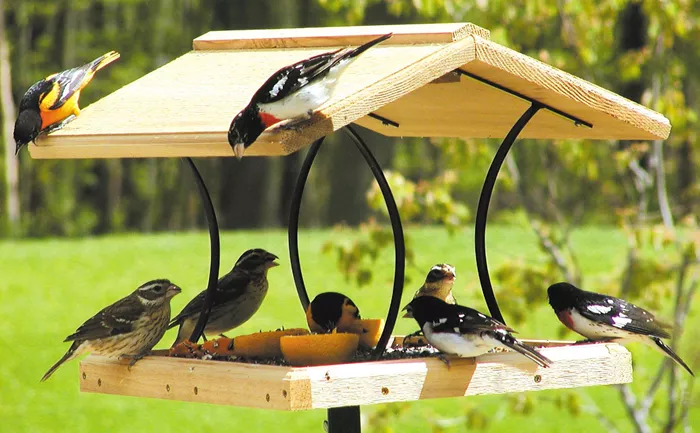Bird flu continues to spread across the U.S., affecting both wild birds and poultry. But does keeping a bird feeder in your yard increase the risk of contracting the virus?
The Centers for Disease Control and Prevention (CDC) reports that nearly 12,000 wild birds have been infected, and almost 158 million poultry animals have been affected by bird flu. While rare, human cases of the virus have been reported, with 68 cases and one death so far.
Most human infections have occurred in people exposed to infected dairy cows, where the virus spreads through milk. Experts suggest the virus may splash into a person’s eyes, causing mild symptoms like conjunctivitis. Currently, no confirmed cases of human-to-human transmission of bird flu exist, and experts say the general risk is low.
However, humans can become infected by handling sick or dead birds and then touching their eyes, nose, or mouth.
For the millions of Americans who feed birds, does this hobby increase the likelihood of coming into contact with the virus?
Could Bird Feeders Contribute to the Spread of Bird Flu?
Bird feeders attract many birds, which could potentially spread avian flu among them. However, bird flu infections are rare in songbirds. Most cases have been found in ducks, geese, and birds of prey.
The risk of getting sick from a bird feeder is low, as people generally do not come into direct contact with the birds. However, if a bird feeder is located near backyard poultry, it could lead to transmission between wild and domesticated birds.
Another potential concern is domestic cats. Some cats have contracted bird flu after eating infected birds. Although the risk is low, experts recommend keeping cats indoors or supervising them in enclosed outdoor spaces to reduce the risk.
While there is no official guidance to remove bird feeders to prevent bird flu, the USDA suggests that people with poultry should keep wild birds away by removing food, water, and shelter sources.
What Precautions Can You Take to Reduce Your Bird Flu Risk?
If you have backyard poultry, it’s important to remove bird feeders. Poultry-to-human transmission is rare but possible, and at least one case has been linked to contact with both wild and backyard birds.
Those with weakened immune systems are especially at risk, so extra caution is advised. If you find sick or dead birds, avoid touching them and contact your local health department for guidance. Wearing gloves, masks, and eye protection while handling birds or bird feeders is recommended. Always wash your hands after removing gloves and before touching your face or eyes.
Despite bird flu’s spread, eggs from both backyard and commercial poultry are still safe to eat as long as they are properly cooked. However, raw eggs are not recommended, as they may contain other harmful bacteria like Salmonella.
If you believe you’ve been exposed to bird flu, watch for symptoms such as fever, headache, and muscle aches. Less common symptoms include gastrointestinal issues or conjunctivitis. Contact your health department for testing if needed.
Read more:
- Should You Avoid Anti-Nutrients? Experts Weigh In On The Debate Over Vegetables
- Measles Outbreaks On The Rise: Do You Need A Booster Shot?
- New Study Shows Yogurt May Lower Risk Of Certain Colorectal Cancers


